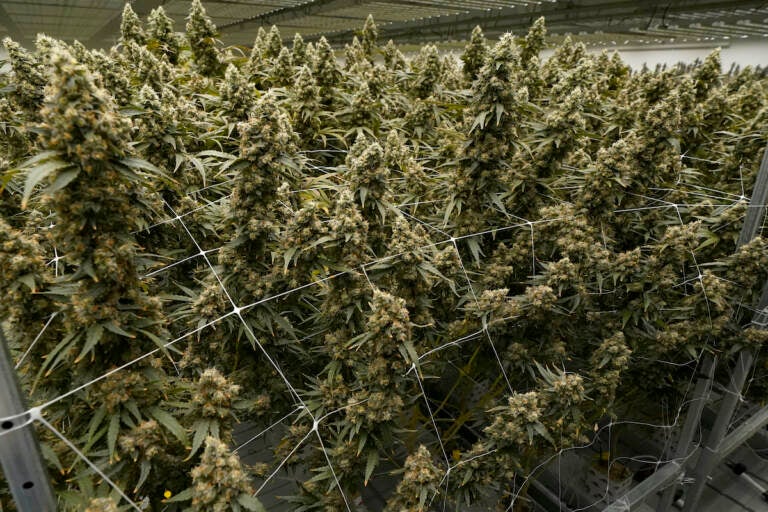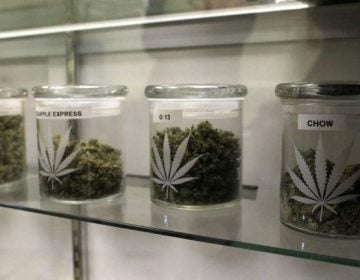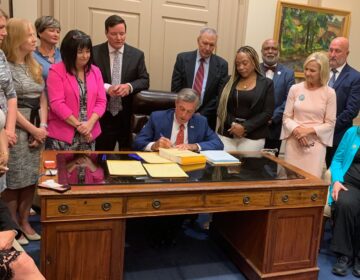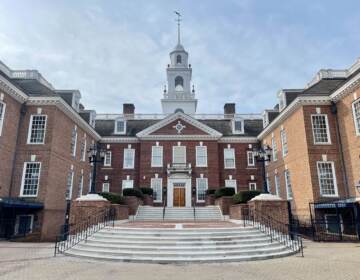Delaware House approves marijuana marketplace framework
State representatives approved a bill to create the framework for the state’s marijuana marketplace and tax structure.

Marijuana plants display buds as they are in the flowering stage at the indoor growing facility of Mockingbird Cannabis in Raymond, Miss., Friday, Jan. 20, 2023. (AP Photo/Rogelio V. Solis)
Delaware lawmakers took another step towards legalizing recreational marijuana sales Thursday afternoon.
State representatives voted 27 to 13 in favor of a bill that would create the framework for the state’s marijuana marketplace and tax structure.
The vote comes just two days after House members passed legislation legalizing personal use and possession of small amounts of marijuana.
“It has been a long journey to get to this point,” said Rep. Ed Osienski, a Newark-area Democrat who has shepherded the legalization effort for years. “We have experienced setbacks along the way, none worse than losing business to New Jersey, but we have learned a great deal and produced what we believe is a strong bill that will make Delaware an industry leader in this field.”
According to the bill’s synopsis, the Delaware Marijuana Control Act “regulates and taxes marijuana for recreational use in much the same manner as alcohol.” That includes licensing for approved sellers, restrictions on sales to minors, and restrictions on driving while under the influence.
It would create 30 retail store licenses. Fifteen of those would be reserved for “social equity applicants,” defined in the legislation as someone who has lived for at least five years in an area “disproportionately impacted” by the state’s enforcement of marijuana laws. Social equity applicants would also include anyone convicted for marijuana-related offenses, with some exceptions.
The measure also creates the Justice Reinvestment Fund to ensure that the communities that were most negatively affected by marijuana prohibition will benefit from the new industry.
“This fund will receive 7% of the marijuana tax and that money will be used for restorative justice, jail diversion, workforce development, industry-specific technical assistance, and mentoring services for economically disadvantaged persons,” Osienski said.
“This fund may also be used on statewide programs designed to do the following: creating and developing technology to assist with the restoration of civil rights and expungement of criminal records, addressing the underlying cause of crime, reducing drug-related arrests, and reducing the prison population.”
It now moves to the Senate where it’s expected to be approved. The same goes for a bill legalizing marijuana which House members approved Tuesday.
Both would then head to the governor, who vetoed the effort last year.
Lawmakers are optimistic they have enough votes this year to override another veto.
WHYY is your source for fact-based, in-depth journalism and information. As a nonprofit organization, we rely on financial support from readers like you. Please give today.







